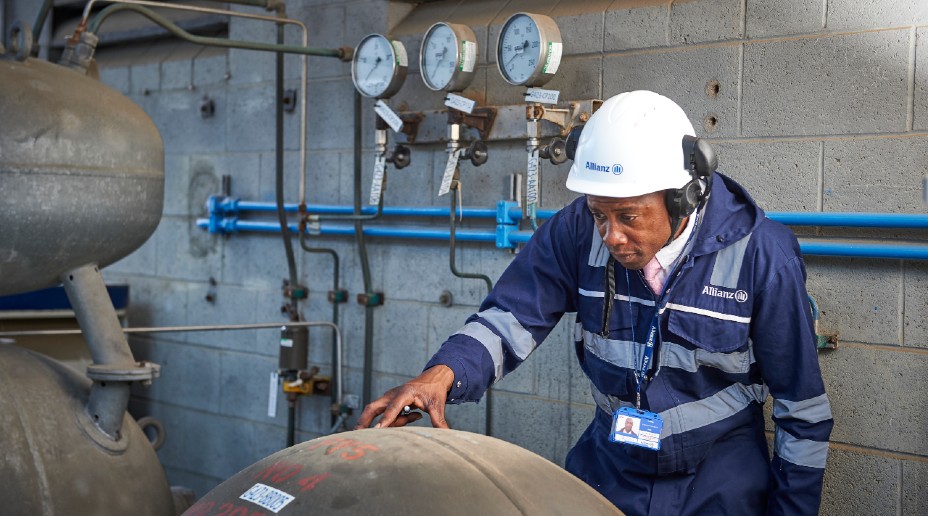- Provision of Energy Performance Certificates (EPCs) and accompanied advisory reports
- Provision of Display Energy Certificates (DECs) and accompanied advisory reports
- Comprehensive TM44 inspections of your air conditioning systems
- Non-statutory energy audits and advisory reports
- Non-statutory inspections of boilers and heating plant
For more information on our range of services,
or to book an inspection, please get in touch.
It is important to keep control of your buildings’ energy usage, both to protect your bottom line and meet your legal requirements.
From helping you secure your Energy Performance (EPC) and Display Energy Certification (DEC) to advising on energy management programmes that reduce carbon emissions, we use accredited energy assessors to provide services which help improve the compliance and efficiency of your commercial buildings.
Building Energy Efficiency and TM44 Inspection Services
Our range of services are designed with the goal of helping you achieve compliance and minimise your energy waste.
Energy Services for Commercial Buildings
Not sure which service is right for you?
Learn more about our service options or contact one of our experts.
Building Energy Efficiency Inspection Services FAQs
If you own, operate or manage a building with air conditioning systems that have an effective rated output over 12kW, and are used for the benefit of people present in the area, you must put in place a programme of energy performance certification and inspections for these systems.
This is required under the Energy Performance of Buildings Regulations 2007 (EPBR) in England and Wales, or the Energy Performance of Buildings Regulations 2008 (EPBR) in Northern Ireland. These regulations are designed to ensure that you take steps to minimise the energy waste of your buildings.
These regulations are split into three key sections:
1. Energy Performance Certificates (EPCs), required for certain domestic dwellings and non-domestic properties that are sold or let.
2. Display Energy Certificates (DECs), mandatory for public buildings that serve a large number of people with a total useful floor area greater than 250m2.
3. Air Conditioning Inspections, which must be completed at least every five years for systems with an output greater than 12kW.
We use experienced, accredited energy assessors that can support you with the above, helping you comply with EPBR, identify energy losses, and save money across your organisation.
We offer a varied range of energy audit and inspection services to commercial customers, helping you ensure compliance with EPBR and that your equipment is as energy-efficient as possible.
We utilise skilled, accredited energy assessors, who thoroughly check your air conditioning systems to locate any issues, assess components, controls and settings, as well as advise on steps to improve the efficiency of your units. These end-to-end TM44 inspections leave no stone unturned, providing you with a valuable advisory report on how to reduce your energy consumption.
We can also work on your DEC and EPC certificates, giving you a clear indication of the energy rating of your buildings, and a list of cost-effective measures to maximise your efficiencies.
Other bespoke services we offer our commercial customers include:
- Non-statutory energy audits and reports, helping you identify where major energy savings can be made.
- Non-statutory inspections of your boilers, assessing their efficiency and highlighting areas for improvement.
Regular energy audits and inspections are more than just a legal requirement – they can unlock major benefits for your business, including:
- lower running costs thanks to greater efficiency and lower consumption
- improved efficiency of building stock
- increased marketability of your buildings to potential tenants
- reduced carbon footprint
- potential improvements to your EPC and DEC ratings.
An Energy Performance Certificate (EPC) affects both domestic and commercial sectors of the property market. This shows the theoretical energy efficiency of a building, compared against building benchmarks of a similar size, age and usage, and displayed on a scale from A-G (A being the most efficient).
Working with our accredited business partners and their assessors, we measure the energy efficiency of your building, providing you with your EPC grade and a list of recommendations to improve this in the future.
According to EPC legislation, EPCs are required on every building that is built, sold or leased to a new occupant with a total useful floor area greater than 50m2.
EPCs are not required if your building is:
- primarily used for worship
- designed to be temporary (less than 2 years)
- used as a workshop, industrial site or non-residential agricultural building with low energy demands
- a standalone non-dwelling with less than 50m2 of useful area
- currently under construction
- not being rented or sold.
If your building is under construction, an EPC will be required within 5 days of its completion.
A Display Energy Certificate (DEC) was introduced as a directive of the Energy Performance of Buildings Regulations to primarily focus on public sector buildings. This displays the actual energy usage of a building on a scale of A-G, and its operational rating.
You are required to get a DEC certificate and display it in a prominent place if your building:
- belongs to a public authority, an institution providing public services, or is partially funded by public funds
- is frequently visited by a large number of people
- has a total useful floor area greater than 250m2.
Through our work with accredited energy assessors, we help you secure DEC certification for your building, and advise on cost-effective ways to improve the energy efficiency of your operations.
EPCs, and their accompanying advisory reports, are valid for ten years upon being issued.
DECs depend on the size of your building. If the area is between 250m2 and 999m2, then your DEC and advisory report is valid for ten years. If the area is 1000m2 or greater, your DEC is valid for 12 months, and the advisory report is valid for seven years.
The Minimum Energy Efficiency Standard (MEES) states that your buildings must have a minimum EPC rating of E in order for you to let it to tenants. From 1st April 2023, this threshold also applies to all new and existing commercial tenancies.
The UK government intends to raise the MEES to a C rating by 2030, making it crucial that you are taking steps to improve the efficiency of your premises.
Speak to our team to explore our range of service options.
Why choose Allianz for your business' energy
audits and inspections?
audits and inspections?
inspections across the UK. You can rely on these experts to review your systems with absolute efficiency and attention to detail,
so you always comply with EPBR and minimise your energy usage.


